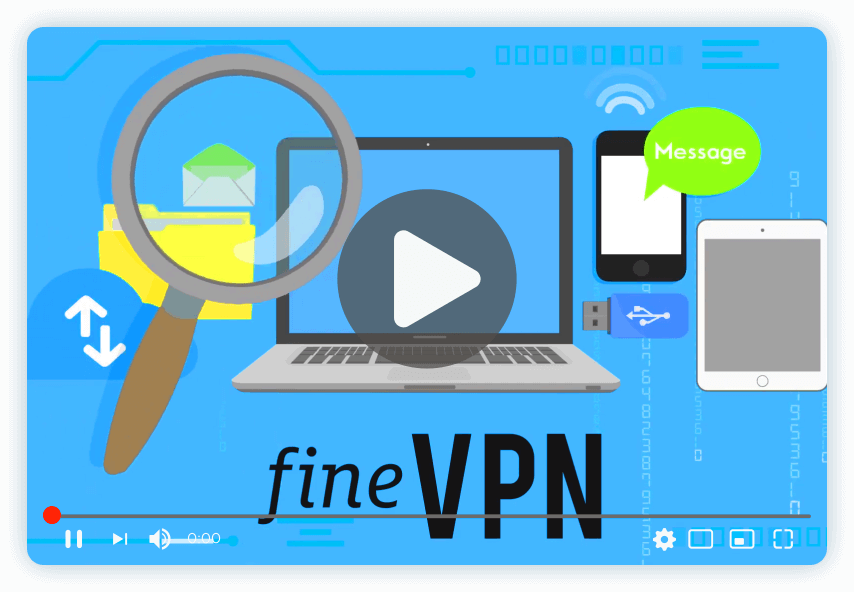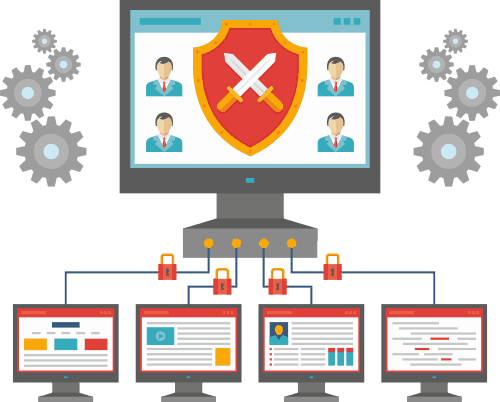In today’s interconnected world, access to information is paramount. Yet, in many countries, this fundamental right is restricted, with governments censoring the flow of information and blocking access to news websites. This article delves into why a VPN is an essential tool for accessing news websites in restrictive countries, providing insights into the challenges faced and how FineVPN offers a solution.
Understanding Censorship: The Barrier to Free Information
In several countries, the government exercises strict control over the internet, determining what content is accessible to its citizens. This control is often exerted to suppress dissent, control the narrative, and prevent the populace from accessing international viewpoints or critical local reports. News websites, especially those that publish content deemed unfavorable by the government, are frequently targeted and blocked, leaving citizens in the dark about global events and diverse perspectives.
The Role of VPN in Accessing News Websites
A Virtual Private Network (VPN) serves as a bridge to the free internet in countries with restrictive internet policies. It masks your IP address and routes your internet traffic through servers located in different countries. This process not only encrypts your data but also makes it appear as though you are accessing the internet from a different location. Consequently, you can bypass government censorship and access news websites freely, without the fear of surveillance or reprisal.
Why Use a VPN for News Access?
The reasons for using a VPN to access news websites in restrictive countries are manifold:
- Bypass Censorship: VPNs help overcome government-imposed barriers, enabling access to blocked news sites.
- Protect Privacy: VPNs encrypt your internet traffic, protecting your browsing activities from surveillance.
- Ensure Security: By hiding your IP address, VPNs safeguard you from potential cyber threats.
- Access International News: A VPN allows you to access news from around the world, ensuring you receive a multiplicity of perspectives.
Potential Challenges with VPN Use
While VPNs are effective in circumventing censorship, users may encounter several challenges:
- Slow Internet Speeds: Encryption and rerouting can slow down your internet connection.
- VPN Blocking: Some governments actively block VPN services, requiring users to find VPNs that can overcome these blocks.
- Legal Risks: In some countries, the use of VPNs is regulated or even prohibited, posing a risk to users.
Why FineVPN Stands Out
FineVPN distinguishes itself as the premier choice for accessing news websites in restrictive countries for several reasons:
- High-Speed Servers: FineVPN offers high-speed servers that minimize the impact on your internet speed.
- Robust Encryption: Your data is protected with state-of-the-art encryption, ensuring your activities remain private.
- No Logs Policy: FineVPN does not store logs of your internet activities, ensuring your privacy is paramount.
- Ease of Use: With user-friendly apps and simple setup, accessing unrestricted news is hassle-free.
Setting Up FineVPN with Wireguard for Unrestricted News Access
Installing FineVPN to access news websites in restrictive countries is straightforward, especially when using Wireguard along with the FineVPN configuration file:
- Download and Install Wireguard: Visit the Wireguard website, download, and install the application for your device.
- Obtain FineVPN Configuration File: Sign up for FineVPN and download the Wireguard configuration file for your preferred server location.
- Import Configuration File: Open Wireguard, import the FineVPN configuration file, and establish a secure connection.
- Enjoy Unrestricted Access: With the VPN activated, you can now freely access news websites from around the world.
By leveraging FineVPN and Wireguard, individuals in restrictive countries can reclaim their right to access free and diverse news sources. In doing so, they empower themselves with knowledge, enabling informed decisions and fostering a global perspective.












